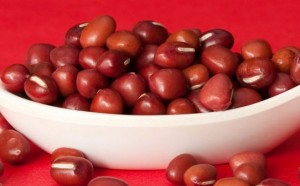Cancer Prevention —–Manganese, in which kidney beans are abundant, is one aspect of the antioxidant defense they provide. The crucial oxidative enzyme superoxide dismutase, responsible for disarming free radicals in mitochondria, needs manganese. On top of that, the vitamin K in kidney beans has been shown to protect cells from oxidative stress, reducing chances of cancer.
Brain Function—–Vitamin K in kidney beans offers outstanding benefits for the brain and nervous system. The myelin sheath, or the outer wrapping around nerve, needs fat called sphingo lipids to form properly. Vitamin K is known to be essential for the synthesis of the sphingol ipids, and therefore proper brain and nervous function. Kidney beans are also a good source of thiamin, which is critical for brain cell and cognitive function. This vitamin is needed for the creation of acetylcholine, a neurotransmitter used for memory and the lack of which is a significant factor in senility and Alzheimer’s disease.
Blood Sugar—-The soluble fiber in kidney beans decreases the metabolism rate of the bean’s carbohydrates, which prevents blood sugar levels from rapidly spiking after a meal. The kidney bean’s high protein content also contributes to this effect.
Sulfite Detoxification —–Sulfites are a preservative typically added to prepared foods such as delicatessen salads and salad bars. Like other beans, kidney beans contain high levels of the trace mineral molybdenum, a key component of the enzyme sulfite oxidase, whose job is to detoxify sulfites. This is important for people with sulfite allergies who are experiencing symptoms such as headache or rapid heartbeat.
Digestive Tract Health—-The insoluble fiber in kidney beans helps to maintain bowel regularity by increasing stool bulk. The fermentation of dietary fiber in the large intestine also helps to maintain good bacteria in the digestive tract. Regular bowel movements are associated with a lower risk of colon cancer.
Cardiovascular Benefits—–The high fiber content of kidney beans is responsible for their cholesterol-lowering power. The folate they contain helps in lowering levels of homocysteine, which is associated with an increased risk of stroke, heart attack, and peripheral vascular disease. The high content of magnesium found in kidney beans contributes to a healthy cardiovascular system.
Energy Booster——Kidney beans are high in iron, which helps increase your energy levels. Iron is required for the body’s metabolism and energy production and helps move oxygen throughout the body. The manganese in kidney beans is also an important contributor to the body’s energy production.
High in Protein—–Kidney beans are a great source of protein, providing a level of protein comparable to that found in meat or dairy. When beans are combined with rice, they form a complete protein.
Bone Strength—–The manganese and calcium in kidney beans work hand in hand to maintain strong bones and along with other trace minerals may help prevent osteoporosis. Kidney beans are also a great source of folate. Research has shown that low amounts of folic acid in the diet lead to an increase in homocysteine levels and significantly increases risk of osteoporosis-related bone fractures, particularly hip fracture in both men and in women. Vitamin K has also turned out to be a critical nutrient for bone health. People who are vitamin K deficient have a greater risk of suffering bone fractures. Vitamin K has been also been shown to help stop fractures in women who have passed through menopause and have already started to experience bone loss.











